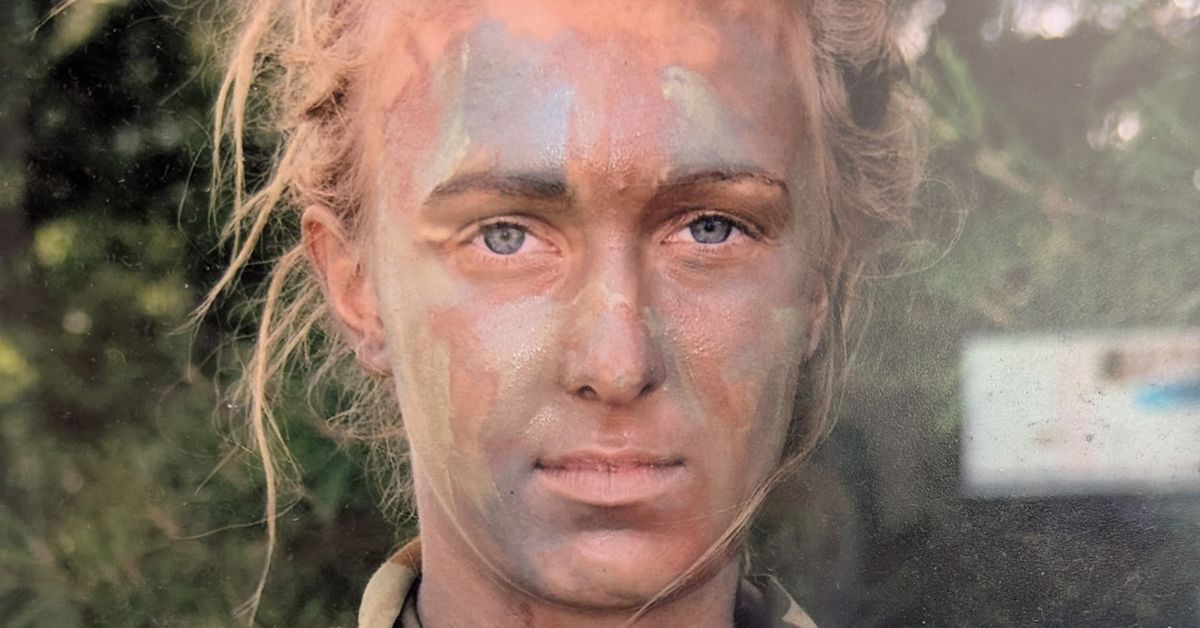At just 17 years old, Nathania Baumanis made the huge decision to dedicate her career to protecting the country as part of the Australian Defence Force.
During her years in the military, serving as an admin clerk and travelling to faraway lands like Afghanistan and East Timor, she recalled herself and her colleagues being “like one big family, especially being a female in the infantry unit.
“The boys really took me under their wing as their little sister. I just felt really supported,” she tells 9honey, having created, “good friends, friends for life”.
READ MORE: Harry and Charles reunite for the first time in 18 months
 Nathania Baumanis joined the military at just 17. (Supplied)
Nathania Baumanis joined the military at just 17. (Supplied)
“You have to rely on each other in the military and the culture’s built on trust,” the now 34-year-old explains, “You’re going to have each other’s back no matter what.”
“It’s really important to have that mateship and peer support.”
In addition to a sense of mateship, the Sunshine Coast resident learned through training to “be resilient, having a strong mindset, just getting the job done, having structure, knowing what you’re doing.”
READ MORE: Global shortage of populate ingredient continues to impact grocery prices
But when she decided to return to civilian life – even with all that she learned and took away from the military – she found it hard to adjust.
“I really struggled with the transition out of the military. I thought I was okay for maybe the first year, but then I felt very isolated and alone, and it was hard to make friends that were your people and that understood you.
This led to a battle with depression, with Nathania turning to alcohol to “hide her emotions”.
“It was a hard time for me, especially when you’re always seen as happy and outgoing, like no one really checks on you.”
For a daily dose of 9honey, subscribe to our newsletter here.
The culture that was so ingrained within her – and many others – also made it hard to be vulnerable and seek support.
“I didn’t have any support, and you kind of have to fend for yourself,” she says.
“I guess speaking up and saying that you’re not okay… a lot of people don’t do that, and they struggle with that, especially [with] the training that you have in the military.
READ MORE: Maid of honour’s wild move after ghosting bride days before wedding
“I guess when you’re trying to be resilient and… have a strong mindset – I think a lot of military personnel struggle to speak up, and they find it hard when they’ve being trained to be resilient and they might feel weak.”
It was then that three little words could’ve made a world of difference for Nathania – “R U OK?”
Despite Australians associating the term with the second Thursday in September, the suicide prevention charity of the same name encourages everyone to ask the question any time, any day.
READ MORE: What parents need to know when choosing a mobile plan for kids
 Nathania with fellow defence member and friend Alice. (Supplied)
Nathania with fellow defence member and friend Alice. (Supplied)
“I think a lot of us [veterans] hold on to our emotions and we don’t like speaking about them. So if someone shows they care, and just a simple conversation of, ‘are you okay?’, could change that person’s life,” says Nathania.
“It might just be that you know three words that get them to speak up.”
Eventually, the veteran found mental health support, speaking to a psychologist regularly and combining it with physical activity such as a regular routine at the gym, as well as ocean therapy.
READ MORE: Denise Richards breaks down in tears while reflecting on marriage to Charlie Sheen
 Nathania is giving back in a full circle moment, working for Medilinks. (Supplied)
Nathania is giving back in a full circle moment, working for Medilinks. (Supplied)
Seeing first-hand the positive effect of mental health services, Nathania decided to come full circle and give back to the veteran community.
After a brief detour in mining, she is now working as the Partnerships Manager at Medilinks, a specialised psychiatric assessment services created by and for veterans to support their mental wellbeing after leaving the military.
Through her work, she aims to help veterans trying to find their footing after leaving the structure and support systems of the military, acknowledging that there is a long way to go.
“I feel like a lot [of veterans] struggle when they transition out, because you might have to move locations away from where you were posted, and you don’t have that military support anymore, and feel like people don’t get you,” she explains.
“I think what would help is knowing what support services are available, family and friends checking up and asking if you’re okay, and genuinely showing that they care and can support you through that period.”
Remember to drink responsibly. If you or someone you know needs help, please call the National Alcohol and Other Drug hotline on 1800 250 015
If you or someone you know is in need of support or hope, contact Lifeline on 13 11 14
FOLLOW US ON WHATSAPP HERE: Stay across all the latest in celebrity, lifestyle and opinion via our WhatsApp channel. No comments, no algorithm and nobody can see your private details.

